This is the 5th blog in this series.
So far, we have covered knowing the signs and symptoms of heat-related illness, sources of water, tips to drink more water, and ideas to beat the heat and stay safe. Next, I am going to cover some tips and suggestions about fire preparedness. This platform is the perfect place to provide helpful information to our readers.
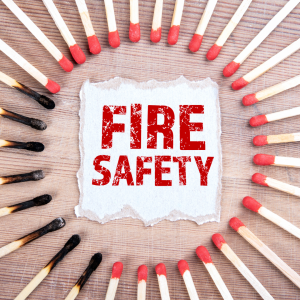
Extreme heat can bring about hazards and dangers including the risk of fire. Emergency preparedness is essential to mitigate any type of disaster including hurricanes, tornados, earthquakes, tsunamis, fires, and more. If it is predictable, it is usually preventable. With fire, there is often no warning and fire spreads quickly. There isn’t a lot of time to react and plan. Fire is scary and can be devastating. As we see year after year, the danger of fire is very real, with scorching temperatures linked with wildfires.
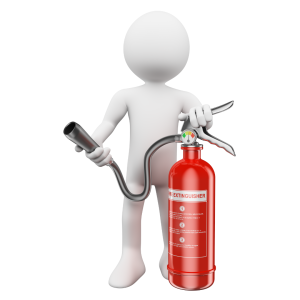
Please take a few minutes to read this blog on fire preparedness from Broward County, Family and Consumer Sciences.
https://blogs.ifas.ufl.edu/browardco/2021/10/31/fire-preparedness-matters/
Here are 17 tips and suggestions to keep in mind as you develop your fire preparedness and safety plan:
- Review and update your homeowners or renters’ insurance policy at least once a year.
- Here is a project to work on now. Update your list and/or video recording of your home contents. Photograph or film the inside contents of your home and exterior items. Update when new home contents are purchased and/or changes are made to your landscape. Keep important documents in a fireproof container.
- Purchase home fire extinguishers and place them in the kitchen, laundry room, and/or garage. An extinguisher with an ABC rating can fight fires caused by paper, wood, cloth, flammable liquids, and electrical short circuits. Check your fire extinguisher and replace it as needed, making sure it is not expired. Know how to use a fire extinguisher.
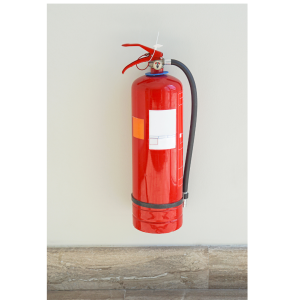
How to use a fire extinguisher and the PASS method
https://www.youtube.com/watch?v=PQV71INDaqY
4. Install at least one smoke alarm/smoke detector on each level of your home, including near sleeping areas, and check and/or change the batteries regularly.
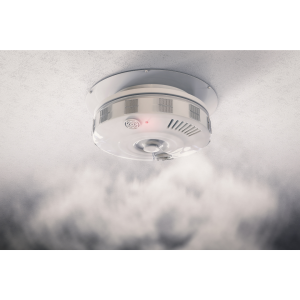
5. Make a family plan for fire emergencies and practice your escape plan one to two times each year. This includes escaping your house, condo, or apartment and how you will evacuate on foot and/or in your vehicle. Set a calendar alert to discuss, review, and update your evacuation plan with your family regularly. Have an evacuation plan that all family members are aware of and participate in.
6. Have a “to-go bag” already filled with some essential items in the event you need to evacuate. Compose a list of what is important and keep the list in the bag so you can double check on any last-minute items that you would need to include, like daily medicine, etc. Buy extra cell phone and computer charging cords to permanently keep in the bag. Consider using a tote bag, backpack, or suitcase. A suitcase on wheels may be the easiest to transport.

7. Maintain a water source or access to water around outdoor fire pits, when in use. Make sure the fire is completely out before leaving the home or going to bed. Have a source of water nearby to put out ashes, coals, embers, or other burning debris.
8. Have at least 10 feet of clearance between your home and fire pits, BBQ grills, and propane tanks. Keep firewood at least 100 feet from your house. Follow local ordinances and permitting standards, as applicable.
9. Rake, bag, and dispose of excess leaves on your property and toss them out in your weekly trash. Otherwise, during the fall, winter, and spring seasons you can use the leaves as mulch in your landscape.
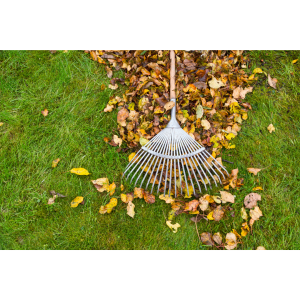
10. Remove rubbish (wood, boards, dead tree branches, old boxes, furniture, tires, etc.) from your property.
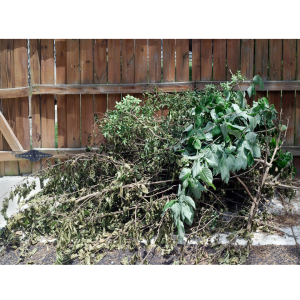
11. Mow your grass regularly. Don’t neglect it and let it get too tall and out of control. Dry grass burns quickly.
12. Follow local burning regulations. Be extremely careful with fireworks.
13. If your clothes catch fire, remember to Stop, Drop, and Roll. You should stop immediately, drop to the ground, and cover your face with your hands. Roll over and over or back and forth until the fire is out. If you or someone else cannot stop, drop, and roll, then smother the flames with a blanket or towel. Get medical help right away by calling 9-1-1 so they can send the fire department.
14. Follow your local news for fire warnings, alerts, evacuation details, and other warnings. Sign up for local cell phone emergency alerts and follow the instructions from authorized personnel.

15. Fill your gas tank. Get extra cash to have on hand, if needed. Know where evacuation shelters are located.
16. Secure your home before you leave or evacuate. Inform your extended family members of your evacuation plan. Assist elderly family members and be mindful of those that have existing breathing or respiratory issues that would become worse by smoke inhalation.
17. If you fail to plan, you plan to fail. Those that are prepared, will most likely survive a fire. Create a plan. Stay calm as you implement your plan. Fire preparedness matters, and it can save lives.
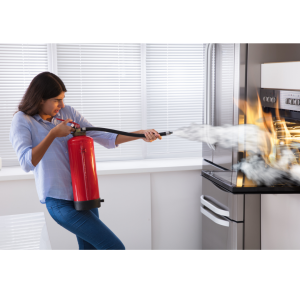
Read more. Learn more.
Fire is Everyone’s Fight – https://www.usfa.fema.gov/prevention/outreach/fief/index.html
UF/IFAS Center for Public Issues in Agriculture & Natural Resources FL EDEN – https://edis.ifas.ufl.edu/entity/topic/pie_center
National Fire Protection Association – https://www.nfpa.org/Public-Education/Fire-causes-and-risks/Wildfire/Firewise-USA
Blogs in this series
- Heat, Hydration, and Dehydration: Know the signs and symptoms Heat, Hydration, and Dehydration: Know the Signs and Symptoms – UF/IFAS Extension Broward County (ufl.edu)
- Heat, Hydration, and Dehydration: Sources of water Heat, Hydration, and Dehydration: Sources of Water – UF/IFAS Extension Broward County (ufl.edu)
- Heat, Hydration, and Dehydration: Tips to drink more water Heat, Hydration, and Dehydration: Tips to drink more water – UF/IFAS Extension Broward County (ufl.edu)
- Heat, Hydration, and Dehydration: Defeat the Heat- https://blogs.ifas.ufl.edu/browardco/2022/07/27/heat-hydration-and-dehydration-defeat-the-heat/
- Heat, Hydration, and Dehydration: Fire Preparedness – Heat, Hydration, and Dehydration: Fire Safety and Preparedness – UF/IFAS Extension Broward County (ufl.edu)
About this series
This blog series was written to inform and inspire the reader to stay hydrated, prevent dehydration and/or heat-related illnesses, and stay safe in the heat. As temperatures rise, so does the risk to our health and our environment. Extreme heat is a threat to our well-being. It is important to make sure you are giving your body enough water to keep it functioning at its best. It is important to have a fire safety preparedness plan. These tips and considerations can improve the quality of your life and potentially save lives. Stay safe.
 9
9
